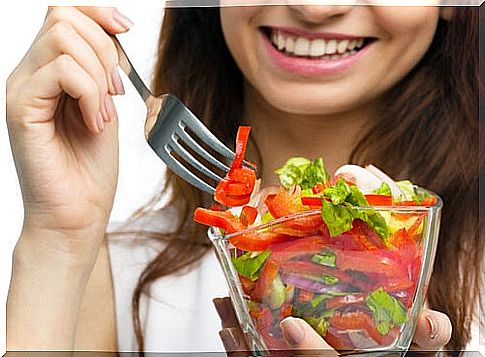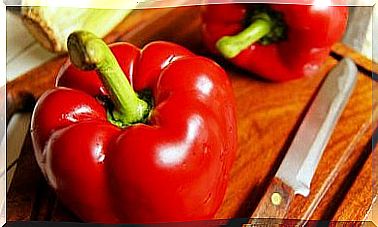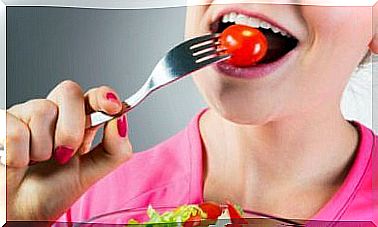6 Tips To Combat Heavy Digestion Naturally
In addition to moderating portions and eating five meals a day, it is essential to chew each food up to 40 times to facilitate the process.

By putting into practice some very simple actions, we can both prevent and combat heavy digestion, without the need to resort to the use of medications.
There are many factors that can negatively influence digestion, from eating in a hurry to not knowing how to manage anxiety properly. Hence, it is often difficult to determine exactly the cause of the problem.
However, most of the time, at least three possible causes can be identified and, based on this, a solution can be found.
Now, since we can’t overlook the fact that good digestion plays a key role in overall health, taking care of it is critical.
It must be remembered that having a good digestive process guarantees optimal absorption of essential nutrients and the correct elimination of everything that the body does not need.
Tips to relieve heavy digestions
The following tips are a simple but effective guide to stomach upset. It should be noted that it is not about a rigid plan to follow, but about learning to determine what is best for us when it comes to eating.
1. Adopt a healthy diet

For obvious reasons, diet is one of the most important aspects when it comes to improving digestion.
A healthy and balanced diet provides the body with everything it needs. Whereas, foods without nutritional value, such as processed foods and fried foods, only promote the development of digestive problems. On the other hand, you should limit the consumption of red meat, since they are very heavy.
Ideally, find a meal plan that includes everything, but in moderation. Of course, it is important that there is a regular consumption of fruits, vegetables and whole grains, since they are an important source of water and fiber.
2. Chew food well
Although it seems like a harmless habit, not chewing food well can affect the functions of the stomach and intestines.
When food is not well chewed, digestion becomes heavier and processes can take twice as long to complete. This leads to the fermentation of some wastes which, when retained, cause inflammation and gas.
The ideal is to chew each food well. The number of times it is chewed varies depending on the type of food, although it is recommended to do it up to 40 times.
3. Increase water consumption
Water is a very important liquid in the digestive process. This not only helps to keep the system lubricated, but it is also essential to mix the food correctly, before stimulating the elimination of waste.
A dehydrated organism has greater difficulty in stool, since the stool is too compact. So, to avoid constipation, it is advisable to drink 6 to 8 glasses of water daily to keep the body hydrated.
In addition to water, the body can also be hydrated through natural juices, smoothies and infusions.
4. Include more sources of fiber
Although this recommendation is part of the dietary habits, it is essential to make a special mention of it, since fiber plays a very important role in relieving heavy digestions.
The consumption of foods that contain it helps to restore the intestinal movement and, in turn, facilitates the expulsion of waste.
- You can find this nutrient in oats, whole grains, seeds, and nuts.
- You should also eat more green vegetables and fruits such as apples, pears, and bananas.
5. Moderate the portions

Heavy digestions usually occur when large dishes are eaten. Too large portions are irritating to the stomach which, by overloading its functions, causes pain and inflammation.
It is best to divide the portions into small plates so that they can be divided into 4-5 meals a day.
6. Do not eat and drink at the same time
Eating and drinking at the same time is not a healthy habit and promotes heavy digestion. In other words, when you drink while you eat, the stomach is not able to fulfill its function normally, so the time for digestion of food is prolonged.
Some tips in this regard are:
- If you usually drink drinks with meals, do so at least 30 minutes after finishing solid dishes.
- If the food is hot, avoid drinking drinks that are too cold.
Avoid heavy digestions
Now that you know what are the tips that can help you have a good digestion, do not hesitate to put them into practice.
Now, if you still feel heavy after eating and have other symptoms, it’s important to see your doctor for an evaluation.









